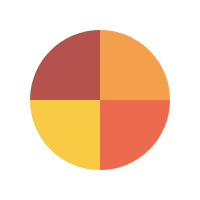

Aug 21, 2023
270
While Tiktok continues to be one of the most trending social media apps, New York City bans Tiktok, for security concerns. The popular social media app launched in 2016 and has been receiving all the attention. This isn’t the first time a city or a country has banned the Chinese app. Earlier, Tiktok in Pakistan was banned as the government found a lot of vulgar content on it. Other social platforms, such as Instagram and YouTube created similar features, like Reels and Shorts to gain the attention of their followers. When Tiktok emerged on the scene, the popular platforms struggled with losing followers. In 2023, Tiktok will have more than 1 billion active users monthly.
Tiktok Ban in New York City- What Went Wrong ?
.jpg)
Due to security concerns, New York City bans Tiktok from being utilized on equipment owned by the government. The city's Cyber Command, which made the announcement on Wednesday, claimed that the famous social platform posed a security threat to the city's technical networks. All city departments and staff are subject to the prohibition. TikTok is no longer allowed to be downloaded or used on any computer or mobile device controlled by the city, including laptops, cellphones, and tablets. Additionally, they are forbidden from using any city-owned equipment or networks to access its website.Back in 2020, the Trump administration forbade the download of TikTok on equipment used by the government as well. However, that prohibition was abolished by the Biden administration in 2021, although a number of states and towns have subsequently implemented their own limitations. TikTok's ownership by Chinese business ByteDance raises security questions regarding the software. Some legislators and government representatives have expressed worry that the Chinese government may utilize the app to gather information on American users or to disseminate false material.These claims have been refuted by TikTok, which asserts that it does not provide user data to the Chinese authorities.
Additionally, the business has stated that it is dedicated to safeguarding the privacy of its customers. It's unknown how it’s popularity in the city will change as a result of the ban in New York City. Despite Tiktok’s security concerns , the app continues to rank among the top social media sites in the country. The prohibition, however, might make it more challenging for TikTok to connect with government employees and authorities. The ban will probably face legal challenges as well. Due to Montana's restriction on the app, TikTok has already filed a lawsuit against the state. It's probable that New York City will experience a comparable legal issue. The TikTok ban in New York City is a sign of the rising security worries surrounding the app. It is uncertain whether other states and localities will adopt the same policy.
Is Tiktok Banned for Everyone?
No, Tiktok is not banned for everyone. The popular social media app has faced numerous temporary bans in the past. For instance, in Pakistan, the app was blocked in 2020, but the reason behind it was not Tiktok data privacy concerns but that the app was spreading obscenity nationwide. Pakistan being a muslim country, the officials saw it as a potential threat. However, after 10 days, the ban was lifted as the nation protested that it was the only entertainment they had during the brutal lockdown. Apart from New York City, Afghanistan and India are the Tiktok banned countries that don't allow any access to the app for their nation. India has suggested that it might lift the ban in the future, but has not promised anything. However, similar to the USA based city, Australia and Belgium have imposed a TIktok government ban as they suspected their data might get compromised by the well-known social app.
Can Social Networks Steal Our Data?
Indeed, our data can be stolen through social media. We often provide social networks with a lot of personal information when we set up an account, including our name, email address, phone number, date of birth, and location. We might also divulge other details, such as our likes, pastimes, and pictures. These details may be used by social networks to sell our data to outside businesses, track our online behavior, and target us with advertisements. Additionally, they are susceptible to hacking, which might allow thieves to steal personal data.
Here is how you can protect your data:
• Be cautious while sharing information. Share only the information that is required.
• Choose secure passwords, and avoid using the same one across many platforms.
• Set up two-factor verification.
• Be aware of the social network's privacy settings and make sure they are as rigorous as possible.
• Use caution when clicking on links in emails or communications from strangers.
As technology is getting stronger day by day, we have to be aware where we share our data. Not only social platforms, but AI is also capable of data theft. With such development, the future can be very fragile. Before your data is put into jeopardy, ensure that you only share which is required.
